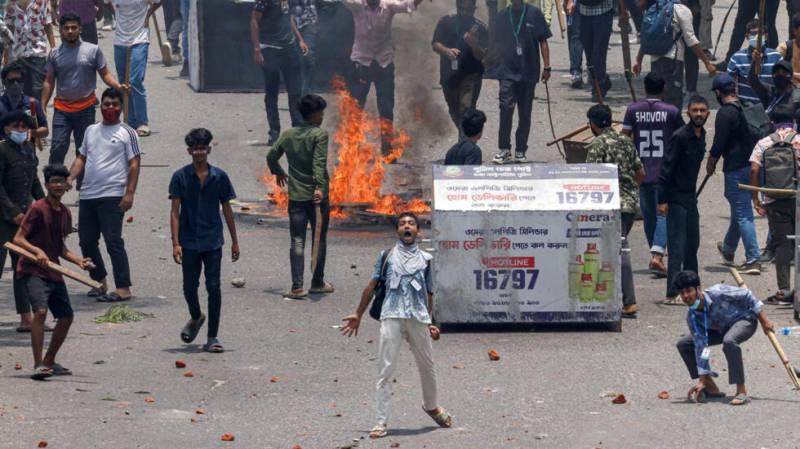
Bangladesh’s Supreme Court has struck down a contentious quota system for government jobs, following days of intense protests and violent clashes that have left over 100 people dead, mostly students.
The Supreme Court's ruling on Sunday reduced the veterans' quota from 30% to 5%, with 93% of government jobs now to be filled based on merit. Additionally, 2% of positions will be reserved for ethnic minorities, transgender, and disabled individuals. This decision follows a reintroduction of the quota system in June by the High Court, which had previously been abolished in 2018.
The reimplementation of the quotas triggered widespread protests from students frustrated by limited job opportunities and perceived inequity. The demonstrations, which began on university campuses, quickly escalated into violent confrontations. Protesters clashed with police, who responded with rubber bullets, tear gas, and smoke grenades.
Protesters attacked various targets, including the headquarters of Bangladesh Television, setting it on fire, and stormed a prison, freeing hundreds of inmates. Authorities have imposed a communications blackout, shutting down the internet and phone lines, and have arrested numerous opposition and student leaders.
The unrest has posed a significant challenge to Prime Minister Sheikh Hasina’s administration, which recently secured a fourth consecutive term amid accusations of election rigging and authoritarianism.
The government has enforced a strict curfew and deployed military forces to maintain control, with reports of "shoot on sight" orders for curfew violators.
In response to the Supreme Court’s decision, student leaders have expressed mixed reactions. While they view the ruling as a partial victory, they are demanding further reforms, including the reopening of university dormitories, the resignation of certain university officials, and the passing of a quota reform bill in parliament.
